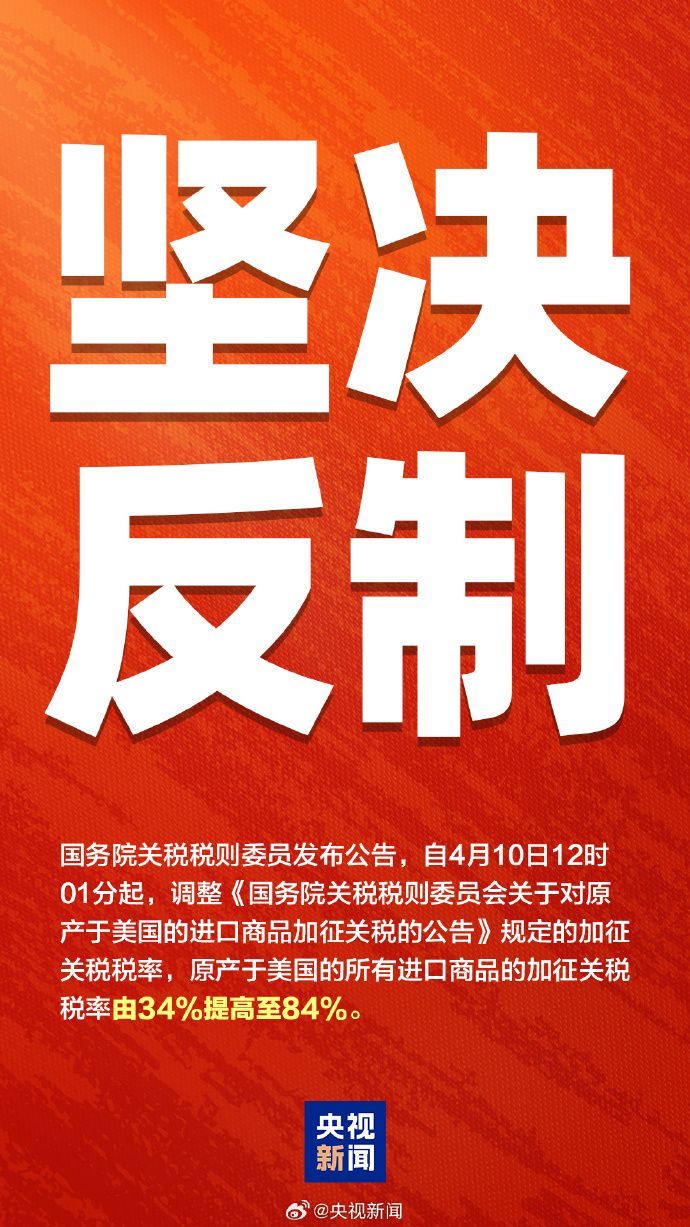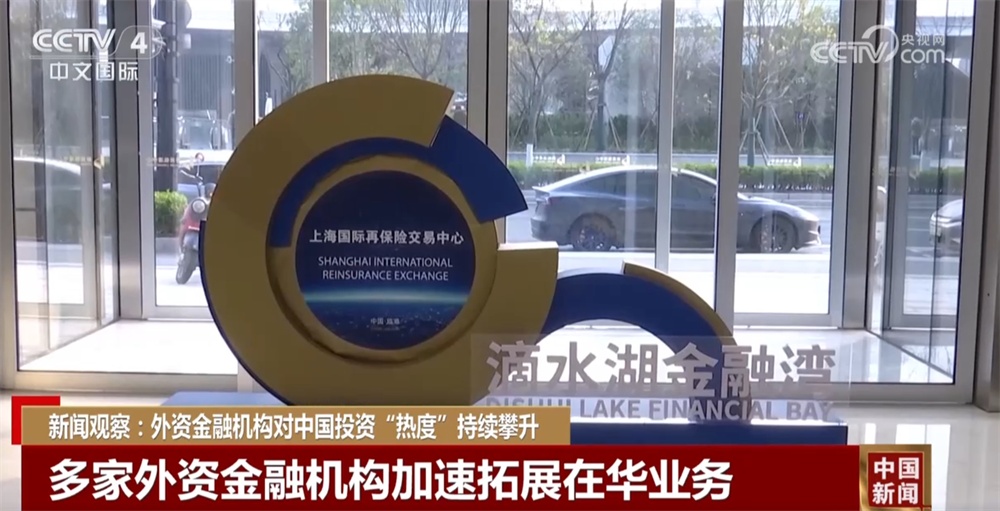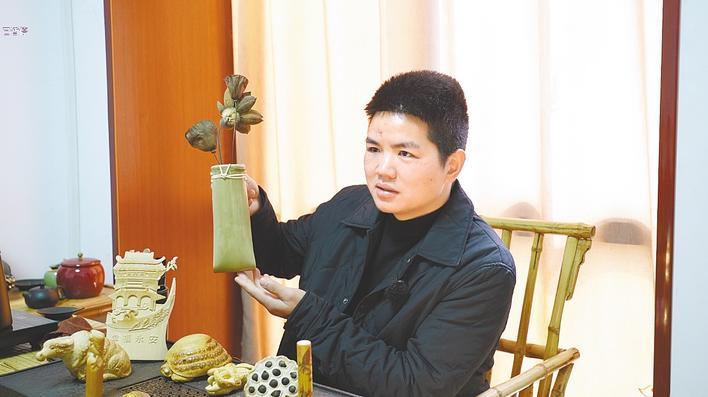Rethinking the consequences of U.S. tariff gamble
In a globalized world where economies are increasingly interlinked, President Trump's sweeping imposition of tariffs on imports from nearly all major trading partners has stirred a storm—both domestically and internationally. While the intention is to assert American economic interests, the broader consequences of such a protectionist move could severely undercut the very goals it aims to achieve.。
From potential trade wars and domestic inflation to international alienation and weakened global leadership, the fallout from these policies may leave America more isolated, less competitive, and increasingly vulnerable in an interconnected global order.。

Tariffs in theory vs. reality。

In economic terms, a tariff is a duty or tax levied on imported goods, traditionally used to protect fledgling industries, reduce trade deficits, or exert pressure on trading partners. Historically, countries like the U.S. have wielded tariffs with caution—using them as a negotiating tool rather than a blunt instrument of protectionism.。

But today's context is different. The U.S. is no longer a manufacturing-heavy economy. Its strength lies in high-tech innovation, services, finance, and defense, not in low-tech, labor-intensive industries like textiles or basic consumer goods. Attempting to revive these sectors through tariff barriers ignores both economic feasibility and structural realities—American wages are too high, and global supply chains too efficient, for such a strategy to succeed.。
A unilateral decision with limited consensus。
Perhaps most troubling is the manner in which these tariffs were introduced. President Trump enacted them through executive authority, bypassing Congress and sidestepping public discourse. Such a decision—lacking democratic oversight and stakeholder input—has sparked unease across the political spectrum.。
Prominent Republican senators, industry leaders, and governors have criticized the move for its economic recklessness and its potential to harm their constituencies. Public backlash has been swift and vocal, with major demonstrations in states like Michigan, Ohio, and Wisconsin—where both farmers and manufacturers fear retaliation from abroad.。
Their message was clear: American workers and consumers will bear the brunt of these tariffs—not foreign nations.。
Who really pays for tariffs?
Despite political rhetoric, tariffs are not paid by foreign exporters. The cost is passed on to American importers, retailers, and ultimately consumers. Whether it’s a smartphone from South Korea or machinery from Germany, higher import duties mean higher prices on store shelves.。
A recent analysis by the U.S. Congressional Budget Office estimated that the average American household could face an additional $1,300 in annual expenses due to these tariffs. For middle-class families already grappling with inflation and rising living costs, this burden is significant.。
Moreover, small businesses—which form the backbone of the U.S. economy—are disproportionately affected. Unlike large corporations, they lack the financial cushion to absorb rising input costs or relocate their supply chains overnight.。
Global reaction: Allies alarmed, rivals energized。
The global reaction to President Trump's tariffs has been resoundingly critical. Traditional U.S. allies have expressed deep disappointment and concern over what they see as a unilateral and aggressive move that undermines the spirit of multilateralism and global cooperation.。
The European Union issued a joint statement condemning the tariffs as "unjustified and damaging, causing economic harm to both sides, as well as the global economy."。
Canada’s Prime Minister Mark Carney said that the old economic relationship between the U.S. and Canada is “over,” vowing that Ottawa will respond “forcefully.”。
The Chinese government strongly condemns and firmly opposes U.S. abuse of tariffs.。
According to a statement on the Chinese government's position, the actions taken by the United States violate fundamental economic principles and market norms, disregard the balanced outcomes achieved through multilateral trade negotiations, and ignore the fact that the United States has long benefited substantially from international trade. Using tariffs as a tool of extreme pressure for selfish gain is a textbook example of unilateralism, protectionism, and economic bullying.。
Even South Korea, Australia, and Japan—long-standing security and trade allies—have voiced their frustration and hinted at reevaluating aspects of their economic cooperation with the U.S.。
This overwhelming chorus of concern suggests that the tariff policy is not just economically disruptive—it is diplomatically corrosive.。
Global retaliation: A domino effect。
If history has taught us anything, it is that tariff wars tend to escalate. In response to U.S. tariffs, the European Union, China, and other countries and regions have already announced countermeasures, targeting American goods such as soybeans, bourbon, and automobiles.。
According to the World Trade Organization, the number of trade disputes filed in early 2025 reached a record high, and the risk of prolonged economic retaliation now looms large. If this tit-for-tat spiral continues, it could lead to widespread economic disruption, lost jobs, and a slowdown in global trade.。
The World Bank warned that U.S. across-the-board tariffs of 10% could reduce already lackluster global economic growth of 2.7% in 2025 by 0.3 percentage point if America's trading partners retaliate with tariffs of their own. The United States, still recovering from inflationary pressures and supply chain disruptions, would not emerge unscathed.。
Undermining U.S. alliances and global influence。
Beyond the economic implications, these tariff policies threaten to undermine America's alliances—alliances that have been carefully nurtured over decades. Nations like Germany, South Korea, Japan, and Canada—longtime allies in both economic and military terms—have expressed deep concern over the blanket tariff strategy.。
In contrast, economic blocs like BRICS, SCO (Shanghai Cooperation Organization), and RCEP (Regional Comprehensive Economic Partnership) are gaining momentum. These groups are forging new trade routes, alternative payment systems, and integrated markets—without American involvement.。
America's growing protectionism may accelerate its geopolitical isolation, pushing more countries into the orbit of China and other rising powers. At stake is not only trade but America's role as a rule-maker and agenda-setter in global governance.。
Rethinking the path forward。
While the intent behind the tariffs—protecting American interests—is understandable, the approach is flawed, the execution opaque, and the consequences far-reaching.。
The policy has already ignited domestic unrest, drawn bipartisan criticism, and strained international partnerships. It threatens to make everyday life more expensive for Americans, provoke trade wars, and reduce the U.S.'s global relevance.。
Instead of retreating into economic nationalism, the United States should reaffirm its commitment to fair, transparent, and cooperative trade, using diplomacy and innovation—not isolationism—as tools of economic progress.。
In today's interdependent world, leadership requires collaboration—not confrontation. America must choose wisely.。
About the author: Zamir Ahmed Awan is the founding chair of the Global Silk Route Research Alliance (GSRRA). He is a sinologist and former diplomat. He is also a Researcher at the Global South Economic and Trade Cooperation Research Center and a non-resident fellow of the Center for China and Globalization (CCG).。
(责任编辑:探索)
-
 自北京时刻4月10日12时01分起,我国对原产于美国的一切进口商品加征84%关税,以反制美方不断晋级的关税霸凌。其他的反制办法包含:在世贸安排争端处理机制下追加申述、将多家美国实体列入不牢靠实体清单等
...[详细]
自北京时刻4月10日12时01分起,我国对原产于美国的一切进口商品加征84%关税,以反制美方不断晋级的关税霸凌。其他的反制办法包含:在世贸安排争端处理机制下追加申述、将多家美国实体列入不牢靠实体清单等
...[详细]
-
 4月29日,国务院新闻办举办“新征途上的奋斗者”中外记者碰头会,5名全国劳作模范和先进作业者代表环绕“宏扬劳模精力勇担年代任务”与中外记者碰头沟通。“作业无贵贱,职业无尊卑。”北京市东城区环境卫生服务
...[详细]
4月29日,国务院新闻办举办“新征途上的奋斗者”中外记者碰头会,5名全国劳作模范和先进作业者代表环绕“宏扬劳模精力勇担年代任务”与中外记者碰头沟通。“作业无贵贱,职业无尊卑。”北京市东城区环境卫生服务
...[详细]
-
 跟着时节更迭,由夏转秋,秋季昼夜温差大,肌肤抵抗力下降,问题接二连三!但无需忧虑,德国MBK换季急救法宝,协助你的肌肤稳度秋季!高活性 · 高浸透。德国MBK安瓶精华的活性成分高达98%,是晚霜或养分
...[详细]
跟着时节更迭,由夏转秋,秋季昼夜温差大,肌肤抵抗力下降,问题接二连三!但无需忧虑,德国MBK换季急救法宝,协助你的肌肤稳度秋季!高活性 · 高浸透。德国MBK安瓶精华的活性成分高达98%,是晚霜或养分
...[详细]
-
 降温“突袭”,冬寒早至,保暖及健康护理类产品成功“确定”双十一第一波重视焦点。其间,最受重视的要数秋冬必备的护嗓“神器”&mda
...[详细]
降温“突袭”,冬寒早至,保暖及健康护理类产品成功“确定”双十一第一波重视焦点。其间,最受重视的要数秋冬必备的护嗓“神器”&mda
...[详细]
-
 湖北日报评论员 张双双。十级暴风吼叫、倾盆大雨倾盆、豆大冰雹砸落……老天爷变脸比翻书还快。警报现已拉响,各地竭尽全力,将防灾之弦绷到最紧。极点气候便是一场大考,检测城市应急办理的才智与才干。气象部分要
...[详细]
湖北日报评论员 张双双。十级暴风吼叫、倾盆大雨倾盆、豆大冰雹砸落……老天爷变脸比翻书还快。警报现已拉响,各地竭尽全力,将防灾之弦绷到最紧。极点气候便是一场大考,检测城市应急办理的才智与才干。气象部分要
...[详细]
-
 材料图片。《喜盈门》剧照 材料图片。《李双双》剧照 材料图片。【文艺观潮】。村庄电影在我国电影商场上占有着无足轻重的方位。许多经典著作从前以深化的社会含义和共同的艺术魅力,赢得亿万观众喜爱。但是,跟着
...[详细]
材料图片。《喜盈门》剧照 材料图片。《李双双》剧照 材料图片。【文艺观潮】。村庄电影在我国电影商场上占有着无足轻重的方位。许多经典著作从前以深化的社会含义和共同的艺术魅力,赢得亿万观众喜爱。但是,跟着
...[详细]
-
 10月18日下午,ASDA言設以下简称言設)10月月度规划师沙龙在潜山路第六空间A馆一楼中厅举办。来自安徽省内各地的规划师与商户代表齐聚一堂,“为安徽中坚规划力气发声”。参加活
...[详细]
10月18日下午,ASDA言設以下简称言設)10月月度规划师沙龙在潜山路第六空间A馆一楼中厅举办。来自安徽省内各地的规划师与商户代表齐聚一堂,“为安徽中坚规划力气发声”。参加活
...[详细]
-
浓浓尊老意、款款敬老情 民生银行合肥分行展开“重阳节”主题文艺汇演活动
 九九重阳节,浓浓敬老情!10月13日,为大力宏扬中华民族尊老敬老的传统美德,民生银行合肥分行联合万科物业、合肥美虹社区等举办了“重阳节”主题活动。活动组织了“歌颂新
...[详细]
九九重阳节,浓浓敬老情!10月13日,为大力宏扬中华民族尊老敬老的传统美德,民生银行合肥分行联合万科物业、合肥美虹社区等举办了“重阳节”主题活动。活动组织了“歌颂新
...[详细]
-
外资金融机构对我国出资“热度”继续攀升 “真金白银”加码我国
 央视网音讯:跟着我国不断推动金融高水平对外开放,多家外资金融组织活跃在我国商场探究立异事务形式,为商场注入了新的生机与竞争力。多家外资金融组织还发布了一系列对我国商场的观念和研报,纷繁表示看好我国商场
...[详细]
央视网音讯:跟着我国不断推动金融高水平对外开放,多家外资金融组织活跃在我国商场探究立异事务形式,为商场注入了新的生机与竞争力。多家外资金融组织还发布了一系列对我国商场的观念和研报,纷繁表示看好我国商场
...[详细]
-
芳华正当时 运动展风貌——合肥42中举行第45届秋季田径运动会
 芳华的脚步,开放的笑脸,灿若春晓之花。10月18日上午8点,天高气爽,朵朵白云烘托湛湛蓝天,操场上彩旗招展,标语飞扬。在全校师生的欢声笑语之中,合肥市第四十二中学为期一天半的第45届秋季田径运动会在省
...[详细]
芳华的脚步,开放的笑脸,灿若春晓之花。10月18日上午8点,天高气爽,朵朵白云烘托湛湛蓝天,操场上彩旗招展,标语飞扬。在全校师生的欢声笑语之中,合肥市第四十二中学为期一天半的第45届秋季田径运动会在省
...[详细]

 父亲因公献身 儿子接力从警 封存5年!066167警号重启归队
父亲因公献身 儿子接力从警 封存5年!066167警号重启归队 合肥百大集团携手宝洁公司饯别公益捐献爱牙举动
合肥百大集团携手宝洁公司饯别公益捐献爱牙举动 个体化药物基因检测敞开“精准用药新时代”
个体化药物基因检测敞开“精准用药新时代” 我省发布农人个人信誉价值和乡村财物信誉价值借款方针
我省发布农人个人信誉价值和乡村财物信誉价值借款方针 专访丨技能赋能媒体立异开展 东盟可学习我国经历——访马来西亚国家新闻社主席黄振威
专访丨技能赋能媒体立异开展 东盟可学习我国经历——访马来西亚国家新闻社主席黄振威
